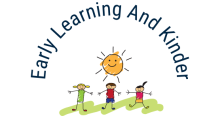3 Unhelpful Things Well-Meaning Parents Say

Your child is crumpled up into a ball and sobbing in the living area over a broken toy. You rush to calm the child down and make him feel better, but will it work?
Even though we would like to think of ourselves as fonts of wisdom that never end, sometimes our words can be unhelpful. It’s not always that we are trying to help our children, but rather comforting them when they have a meltdown in the middle of the store or an afternoon tantrum.
Next time you hear these words, think about a new way to handle the situation.
1. Do not worry, or do not cry. We say these things to make our children feel better, but it can also make them think that you don’t care about their feelings. We all feel sad or anxious at times, so we should help our kids learn how to deal with their emotions rather than ignore them. You can acknowledge your child’s feelings instead of saying that it is silly to think there are pink three-eyed monsters underneath the bed. Then, find ways to help them deal with these feelings. You can ask your child, “What can you do to make yourself feel less scared?” or “What can you do to make yourself feel less worried?” This will show her that her feelings matter and that she has control over them.
2. Don’t be shy. How many times did you find yourself chatting to an acquaintance in the park or at a store, only to discover your son hiding behind your legs? Maybe your daughter, who is normally very talkative, has become quiet when your friend asks a simple question. We often tell our children to “don’t be shy” in an effort to promote politeness. However, we forget that all kids are different, and not all of them are outgoing. Our children are more likely to be shy when we tell them they’re “shy.” Try to prepare them for the next time you meet a new friend in the mall. Arrive early at events to let your child get used to the situation. Most importantly, don’t force your child to talk if they do not want to.
3. Any sentence beginning with “see.” We adults don’t enjoy hearing, “I told ya so,” nor do our children. We’re trying either to teach or reinforce a point when we say, “See, was it a good thing to bring an umbrella to school today?” or “See how much easier it is to choose a shirt if you hang it up.” Our kids instead hear, “I told you that.” You would have a much simpler life if you just listened to me! The best teacher, in this case, is experienced.
These pearls of advice are given with good intentions. However, once we understand how our children will interpret them, we can be just as helpful as intended.













